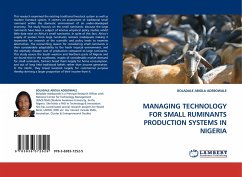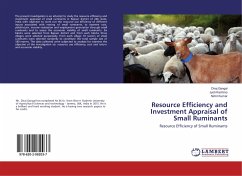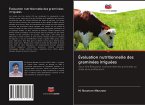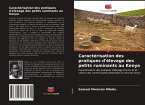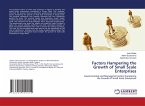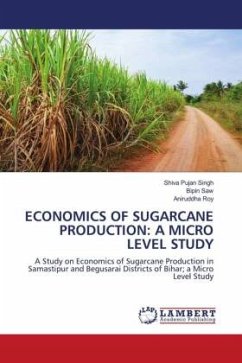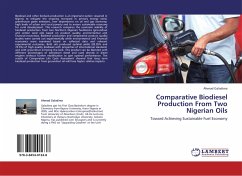This research examined the existing traditional livestock system as well as modern livestock system. It centers on assessment of traditional small ruminant within the domestic environment of an under-developed economy. The study focuses on the small ruminants, because the large ruminants have been a subject of intense empirical policy studies whilst little data exist on Africa s small ruminants. In spite of this fact, Africa s supply of protein from large ruminants remains inadequate making it imperative for research at the scientific and policy levels to examine alternatives. The overarching reason for considering small ruminants is their considerable adaptability to the harsh tropical environment, and the relatively cheaper cost of production compared to large ruminants. This study covers the South western and Northern parts of Nigeria and we found that in the southwest, inspite of considerable market demand for small ruminants, farmers breed them largely for home consumption, and out of long held traditional beliefs rather than income generation. In the North, they breed livestock largely for commercial purpose thereby deriving a larger proportion of their income from it.

